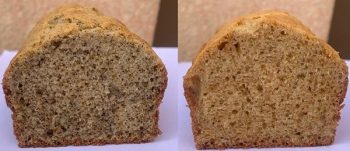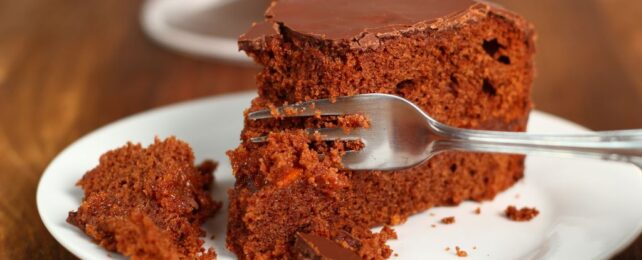Once you've steeped your tea or pressed your coffee in the morning, you might want to think again before you throw the leaves and grounds away. Emerging research suggests there's a whole lot more you can pull from the leftovers.
A new study led by researchers at King Faisal University in Saudi Arabia has shown that if you add used coffee grounds or tea leaves to your next cake recipe, it could enhance the nutritional value of the baked good and extend its shelf life.
"By incorporation of spent tea and coffee powders into the sponge cake blend, the nutritional value of the cake can be enhanced, providing additional health benefits to consumers," the researchers behind the study write.
"The presence of bioactive compounds in the powders also contributes to the potential antioxidant activity… and delays microbial growth during storage."
Tea and coffee are the most popular beverages worldwide, providing countless people with a daily dose of anti-inflammatories, antioxidants, fiber, and even some bioactive compounds with cognitive and cardiovascular benefits.
Unfortunately, the way that most of us make these drinks is highly wasteful. Post extraction, around 90 percent of tea and coffee products are thrown into landfill.
In recent years, scientists have played around with possible ways to put all this waste to better use. Just recently, a study found that by adding charred coffee grounds to cement, it can make the material 30 percent stronger.
But it's not just the construction industry that should be interested in future recycling efforts. Scientists have also suggested using tea and coffee waste to fortify food.
In 2020, for instance, researchers explored the idea of adding spent coffee grounds to gluten-free cookies in a bid to boost their nutritional value.
And in 2023, another study added green tea to cupcakes to see if the flavonoids in the leaves persisted after being in the oven. Flavonoids are important plant compounds with potential anticancer, antioxidant, anti-inflammatory, and antiviral properties.
The newest research builds on those previous studies and investigates whether spent tea or coffee retains its antioxidants after being boiled and ground, and whether that material can be recycled to improve a cake's nutrition or shelf life.
"All in all," the authors write, "we aimed to provide normal households with easy-to-use methods to reduce their carbon footprint… "
When the team of researchers soaked black tea and Arabic coffee in boiling distilled water for 10 minutes, they found the dried grounds still retained a considerable percentage of their phenolic compounds afterward, which include flavonoids.
The tea powder, for instance, retained up to 73 percent of a phenol called theaflavin trigallate, which is a potent antioxidant recommended for those with high cholesterol, obesity, or heart disease.
The used coffee grounds, on the other hand, retained nearly 64 percent of an antioxidant called 1-caffeoylquinic acid, which also has known health benefits.
Even after going in the oven, these antioxidants persisted in the final product.

Compared to a normal sponge cake, the cakes fortified with coffee or tea held higher concentrations of phenols, as well as calcium, phosphorus, potassium, and magnesium.
After two weeks of storage, the fortified cakes also showed less microbial growth than the control cakes, possibly thanks to the inhibitory effect of select antioxidants on the growth of bacteria.
The new findings suggest used coffee or tea could be a natural and sustainable way to improve the shelf life of baked goods, while at the same time infusing the products with added nutrients.
The next time you make yourself a morning cuppa, it might be worth putting the leftovers aside for later.
The study was published in ACS Omega.
